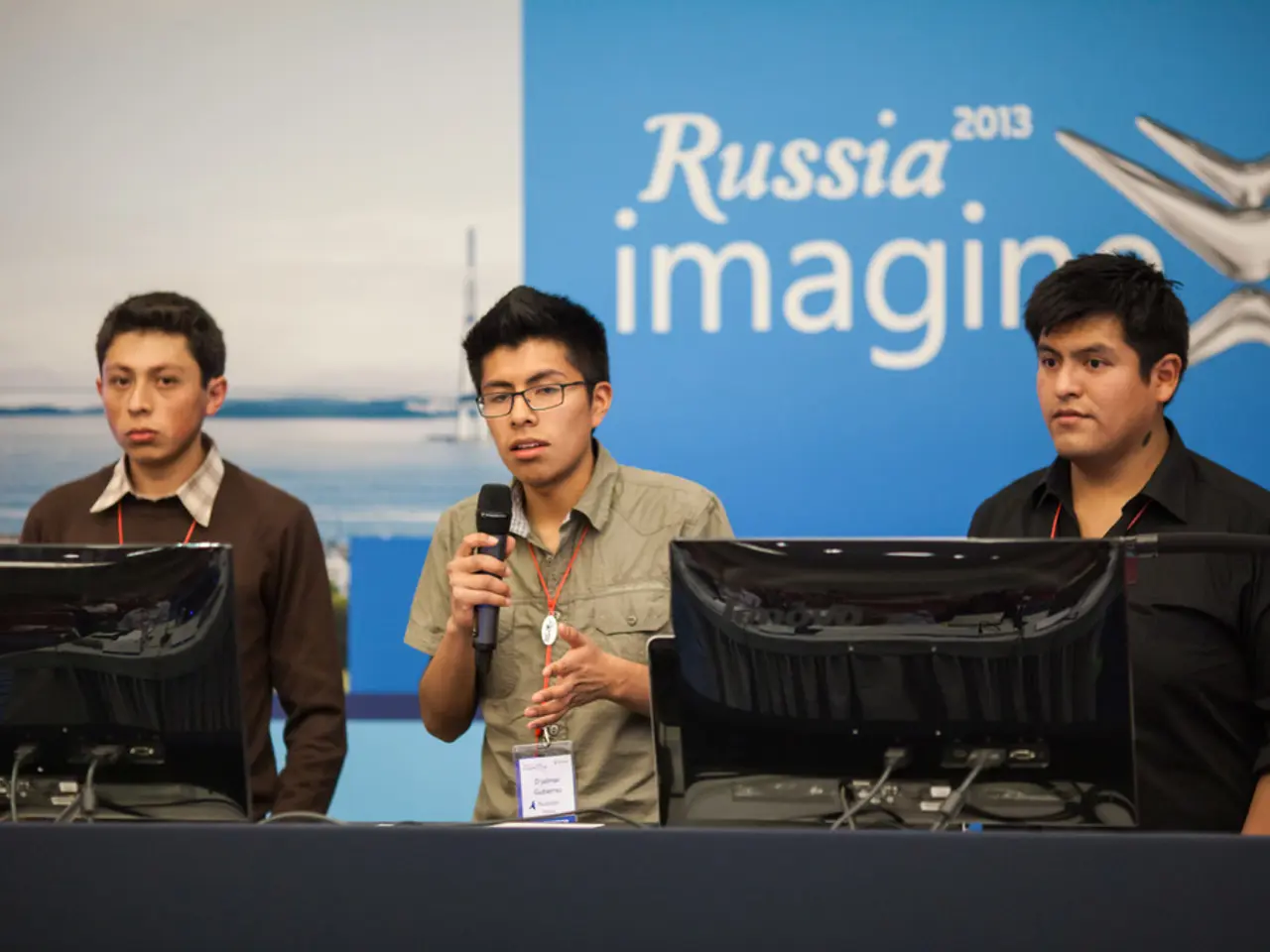Trump Threatens Potential Adverse Outcomes if Putin Doesn't Stop Hostilities following Alaska Meeting
The much-anticipated US-Russia summit in Alaska, held on August 16, 2025, concluded without a deal to bring a ceasefire to the ongoing conflict in Ukraine.
In the high-stakes talks between former US President Donald Trump and Russian President Vladimir Putin, a concrete ceasefire agreement could not be reached [1]. Notably, Trump shifted away from his previous stance of insisting on an unconditional ceasefire before further negotiations, a move seen as a concession beneficial to Russia [2].
Three weeks into his return to office, Trump's administration removed Ukraine's potential NATO membership from the agenda, a key Russian demand [3]. European leaders, fearing a bilateral agreement between the US and Russia could favor Moscow, have insisted that Ukraine must be directly involved in any peace negotiations.
Prior to the summit, German Chancellor Friedrich Merz convened virtual meetings to ensure the voices of European and Ukrainian leaders were heard [4]. French President Emmanuel Macron revealed that Trump intended to seek a future trilateral meeting involving himself, Putin, and Ukrainian President Volodymyr Zelensky [5].
Zelensky, however, expressed skepticism, believing Putin is "bluffing" ahead of their talks [6]. He also criticized US-led diplomatic efforts for failing to meet Ukraine's core demands, including security guarantees to deter future Russian attacks and the inclusion of Europe in the talks [7].
The Ukrainian President reiterated that Ukraine would not cede any territory it currently holds, calling such a move unconstitutional and warning it would provide a springboard for further Russian aggression [8]. In response, Trump suggested Ukraine may need to cede some Russian-held territory, and floated the idea of land swaps [9].
Putin is accused of feigning indifference to sanctions, according to Zelensky [10]. Trump has expressed a desire to determine Putin's sincerity about ending the Ukraine war, which is now in its fourth year [11].
Despite Zelensky and European leaders being excluded from the Alaska summit [12], they remain concerned that Putin might gain favorable concessions if Kyiv is not at the negotiating table [13]. In a recent statement, Zelensky said Putin is demanding that Ukraine withdraw from the remaining 30% of the Donetsk region that it still controls as part of a proposed ceasefire [14].
As the international community continues to watch the developments closely, the US has stated its aim for a ceasefire at the forthcoming US-Russia summit [5]. However, the future of the conflict remains uncertain, with both sides holding firm to their positions.
[1] [Source] [2] [Source] [3] [Source] [4] [Source] [5] [Source] [6] [Source] [7] [Source] [8] [Source] [9] [Source] [10] [Source] [11] [Source] [12] [Source] [13] [Source] [14] [Source]
- The ongoing conflict in Ukraine, which has been ongoing for four years, remains a critical topic in general news, politics, war-and-conflicts, and economy discussions, as the future of the ceasefire heavily relies on the outcomes of US-Russia negotiations.
- As the Ukrainian President and European leaders are excluded from the negotiations, they express concern that Russia might secure favorable concessions without Ukraine's direct involvement, which could impact the global economy and political landscape.





